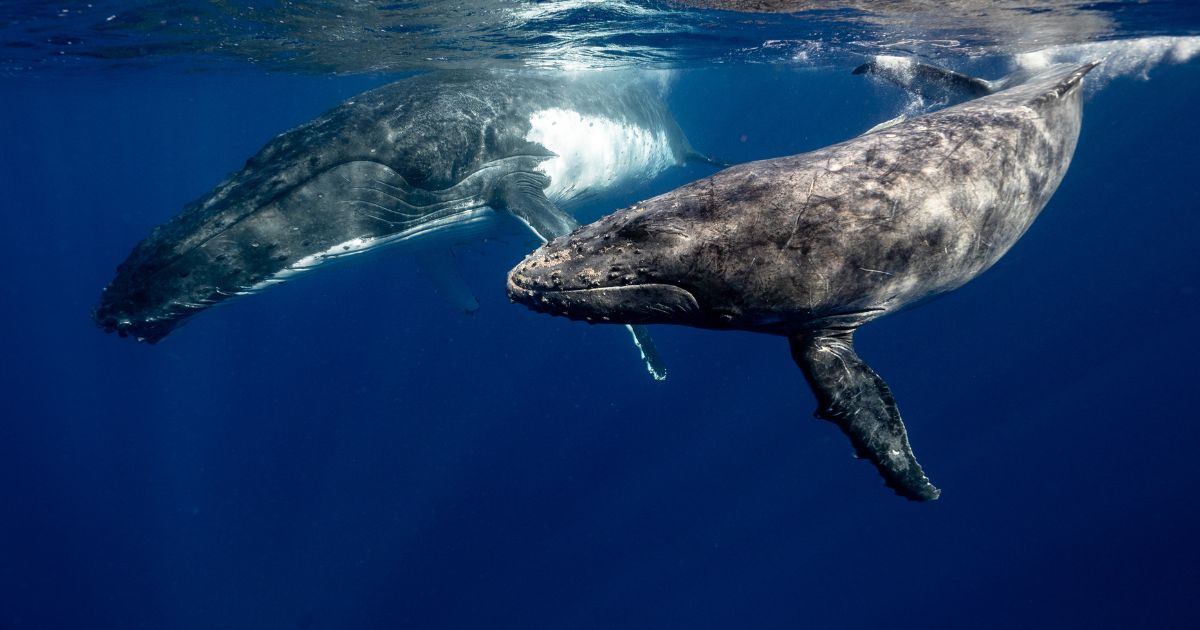Cetaceans in Portugal: MARE researchers highlight biodiversity and threats in Biosfera
In the latest episode of the Biosfera program, broadcast by RTP, MARE researchers Filipe Alves and Joana Castro spoke about the diversity and challenges faced by cetaceans in Portugal. Under the theme “Cetaceans in Portugal,” the episode highlighted the presence of more than 20 species in national waters—among the approximately 80 known worldwide—including dolphins, sperm whales, and whales. 
In addition to addressing the ecological richness of these species, experts warned of the growing threats resulting from human activity, from the noise of tourist boats to accidental capture by fishing gear.
“We use the dorsal fins, in the case of dolphins, to identify each individual,” explained Joana Castro, also director of AIMM - Association for Marine Environment Research. The researcher also detailed the strong social bond between these animals:
"The bonds between mother and calf are extremely strong and last for several years. Females usually have only one calf and invest all their parental care in that calf and its success.“ In addition, the researcher had the opportunity to observe a behavior normally associated with humans—mourning. ”What we observed was a very small calf of a bottlenose dolphin that was, we assume, with its mother. The mother was trying to bring the animal to the surface, trying to get it to react, but the calf had already died, and we could also observe the rest of the group accompanying this female, the mother. And really, all these signs, all these behaviors are directly related to what we observe in other species, and in ourselves, in humans. It is related to mourning behavior, and so we can say that in a way these animals mourn the death of their family members, the members of their group."
Joana Castro also highlighted the importance of whale watching as a tool for conservation and awareness raising, but warned of the negative impacts of unregulated tourism: “Our data indicates that there are behavioral changes, so the animals end up moving around more, reducing their socialization period and reducing their feeding period.”
Accidental capture in fishing nets is another major threat: “Despite growing collaboration with fishermen, interactions with fisheries remain one of the main causes of accidental death for these animals,” she said.
Filipe Alves highlighted the essential role of cetaceans in regulating marine ecosystems, especially sperm whales: “They catch food at a depth of about 1,000 meters. They then excrete nutrients at the surface, stimulating the growth of phytoplankton, which is responsible for 50% of the oxygen we breathe.”
The researcher also spoke about conservation efforts under the Atlantic Whale Deal project, led by MARE and ARDITI in Madeira, which aims to reduce collisions between boats and large cetaceans.
“We are testing acoustic and satellite tools to create collision risk maps and promote safer shipping routes,” explained the researcher, pointing out that despite the end of whaling, these collisions remain a serious threat.
Climate change was another highlight: “Tropical species are increasingly being sighted further north, as is the case with the pantropical dolphin, recently observed in Madeira,” said Filipe Alves. Joana Castro recalled the unprecedented sighting of a Bryde's whale in continental waters in 2020 as a sign of profound environmental changes.
Both researchers called for the conservation of these animals. The preservation of cetaceans in Portugal requires an integrated approach that combines scientific research, effective conservation policies, and public awareness. Ensuring the survival of these species is essential for the health of marine ecosystems and for meeting national and international commitments to protect biodiversity.
Text by Patrícia Carvalho
